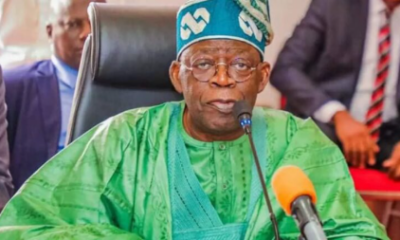The naira has depreciated further to N305 per dollar as scarcity of dollars intensified in the parallel market. From an average of N287 per dollar on Tuesday, the parallel market exchange rate rose to an average of N305 per dollar across the country.
National Daily gathered that though the exchange rate touched N305 in major cities like Lagos, Abuja and Kano, it dropped slightly to between N295 and N300 per dollar in Lagos and Abuja at the close of business, while it closed at N305 in Kano.
Since Monday when the Central Bank of Nigeria (CBN) stopped weekly dollar sales to Bureaux De Change (BDCs), the Naira has been depreciating against the dollar. BDC sources who confirmed the development, however, said that the exchange rate situation is uncertain as the rate changes from time to time.
A BDC operator at Ikeja, Mallam Danladi said that the rate was above N300 during the day. He however said that it was difficult to quote any specific rate now as the situation was unpredictable. He opined that the rate would stabilize by next week, when the market would have absorbed the impact of the new CBN policy.
Meanwhile it was the same story on the floors of the Nigerian Stock Exchange with a total N1.22 trillion losses to investors, giving a year-to-date decline of 12.36 per cent in market capitalisation.
The market key index, the Nigerian Stock Exchange All Share Index, NSE ASI, declined year-to-date by same margin. The stock exchange, which opened this year at market capitalisation of N9.851 trillion, began a free fall till yesterday, closing at N8.63 trillion while the NSE ASI which opened the year at 28,642.25 points closed yesterday at 25,103.05 points.
The losses were heightened in the last 48 hours with a cumulative two-day loss of N430 billion following the escalated foreign exchange management crises which came with CBN’s announcement of its decision to cease sale of foreign exchange to BDCs on account of the precarious state the operators had forced the entire economy.
Financial analysts believe that the CBN’s state-of-the-economy address which came with the BDCs forex ban are having immediate negative effects on the economy, causing investors to withdraw from the Nigerian bourse to safer securities on the continent.

 Health1 week ago
Health1 week ago
 News1 week ago
News1 week ago
 Trends2 days ago
Trends2 days ago
 Latest1 day ago
Latest1 day ago
 Health1 week ago
Health1 week ago
 Crime1 week ago
Crime1 week ago
 Crime1 week ago
Crime1 week ago
 Energy6 days ago
Energy6 days ago













